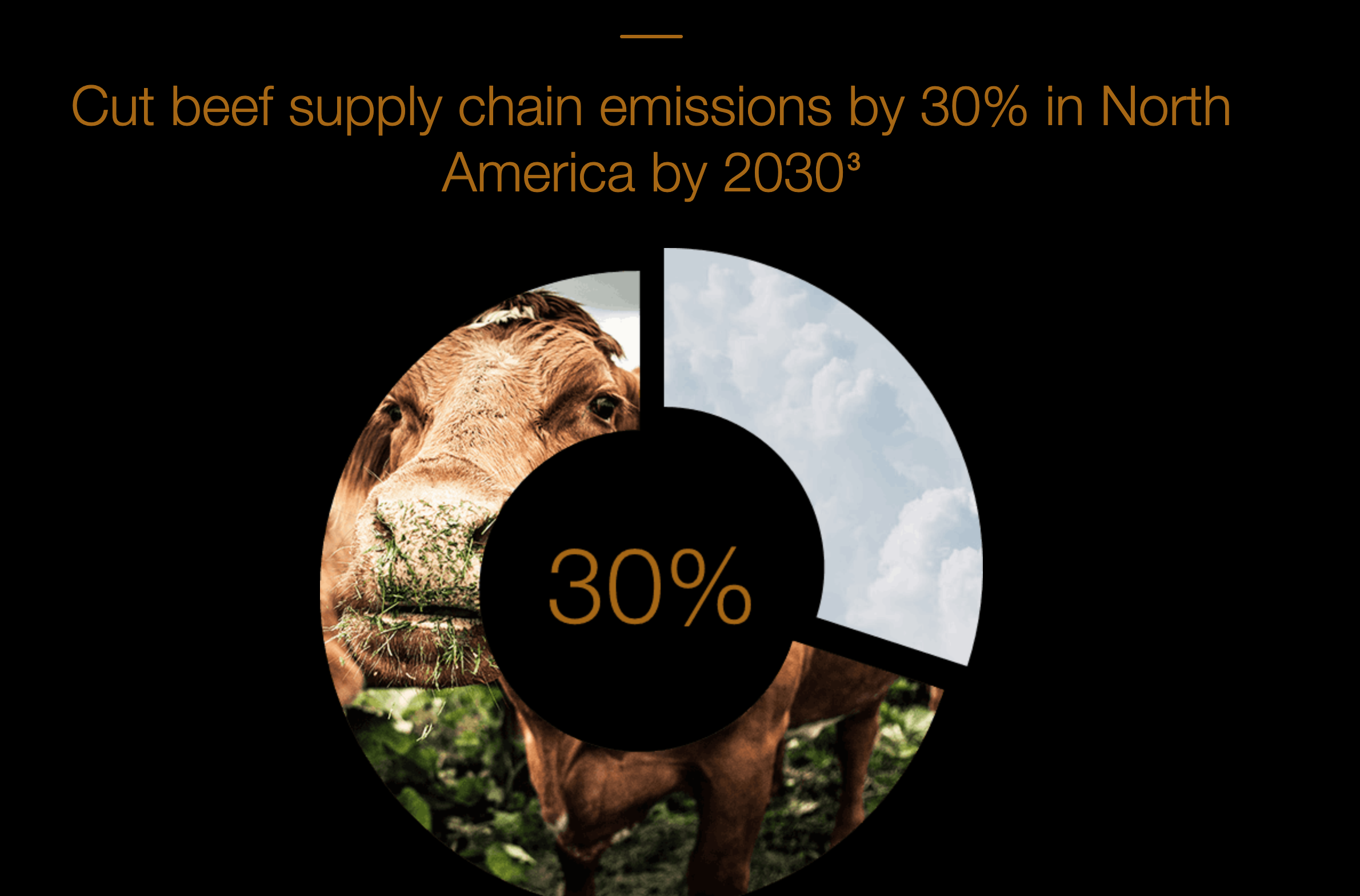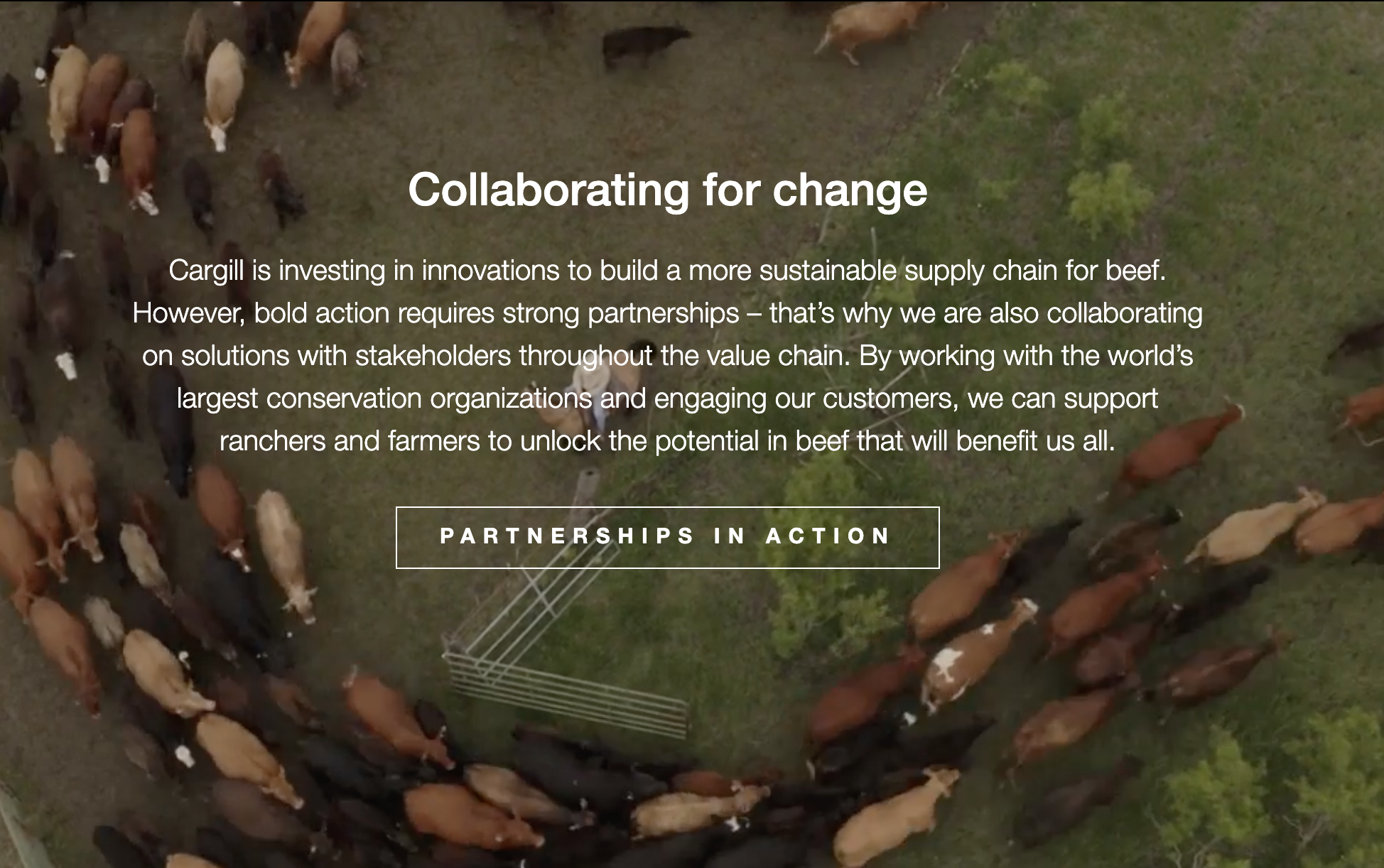
See What
Comes Out
In The Wash
Cargill, Beef Up Sustainability
Cargill is a large beef producer and adopted its ‘Beef up sustainability’ strategy in 2019. The goal: reducing their North American beef supply chain emissions by 30% by 2030.

Whilst a 30% reduction may sound like a large cut, as ever, the devil is in the detail: the 30% reduction is actually measured “on a per pound of product basis from a 2017 baseline”. This footnote is significant as it means that it will be an emissions intensity reduction rather than absolute emissions. Emissions intensity is the level of GHG emissions per unit of product (in this case beef). Reducing emissions intensity in the meat sector often relies on further intensification of production by generating more meat per animal without necessarily reducing the number of animals. The catch is that if production grows, then so too do total emissions.


Cargill set out four strategies on their website but provide no details of how these will contribute to the overall target of 30%. For instance, the strategy to reduce methane emissions via innovation relies on methane inhibiting feed additives, the overall impact of which are still unproven, and improving productivity through genetics of cows, the scope for which is limited in already productive farm systems in the US and Canada.

This is a very vague assertion from Cargill, which as a US global food corporation with revenues estimated at over 100 billion USD a year, has the resources to do more.
With emissions estimated at 86.3 megatonnes in CO2 equivalent a year, they also have a responsibility to do more.
Unsubstantiated
Doesn't reflect the full life cycle